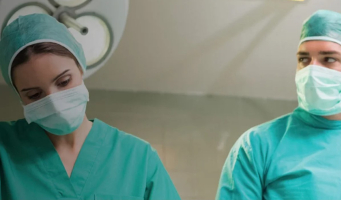Anaesthesia | Patient specific populations | Endocrine problems in the critically ill 1



Endocrine problems in the critically ill 1
Session Overview
Description
This session contains a link to the BJA Education article
The article will open in a new window/tab depending on your browser.
CPD credit can be claimed for the time spent reading the article.
Endocrine problems in the critically ill 1: diabetes and glycaemic control. Elizabeth Kerr, Deborah et al. BJA Education, Volume 17, Issue 11, 370-376
- Dysglycaemia occurs frequently in critical illness, both in diabetic and in non-diabetic patients, often reflecting underlying disease severity
- Aggressive insulin therapy may be harmful and is associated with an increased incidence of severe hypoglycaemia; therefore, a pragmatic approach to glycaemic control is necessary
- Hypoglycaemia is common, and the clinical features are frequently masked in critical illness
- Immediate insulin therapy is not indicated in the hyperosmolar hyperglycaemic state (HHS) and may precipitate cardiovascular collapse
- A mixed picture of diabetic ketoacidosis and HHS can occur; treatment should be directed at the predominant element
- Radiology – Integrated Training Initiative (R-IT...
- Posted By eIntegrity Healthcare e-Learning
- Posted Date: 2025-01-10
- Location:Online
- This session reviews which chambers contribute to the ‘normal cardiac outline’ and examines how specific chamber enlargement or absence alters the normal cardiac shape. It will describe the different diagnoses, which result in characteristic
- Radiology – Integrated Training Initiative (R-IT...
- Posted By eIntegrity Healthcare e-Learning
- Posted Date: 2025-01-10
- Location:Online
- This session provides an overview of the clinical manifestations of haemangiomas, lymphatic and vascular malformations, their radiological work-up plus typical imaging findings.
- Radiology – Integrated Training Initiative (R-IT...
- Posted By eIntegrity Healthcare e-Learning
- Posted Date: 2025-01-10
- Location:Online
- This session covers imaging and diagnosis of paediatric mediastinal masses, and is organised based on their location in the mediastinum.
- Radiology – Integrated Training Initiative (R-IT...
- Posted By eIntegrity Healthcare e-Learning
- Posted Date: 2025-01-10
- Location:Online
- This session discusses radiographic anatomy of the normal mediastinum and its compartments containing different structures and why this is useful when interpreting an abnormal image. The silhouette sign and how it is used to localise a mass on chest radio
- Radiology – Integrated Training Initiative (R-IT...
- Posted By eIntegrity Healthcare e-Learning
- Posted Date: 2025-01-10
- Location:Online
- The session looks at pneumothorax, pneumomediastinum, air leaks in neonates, air leaks in older children and post-traumatic air leaks.


